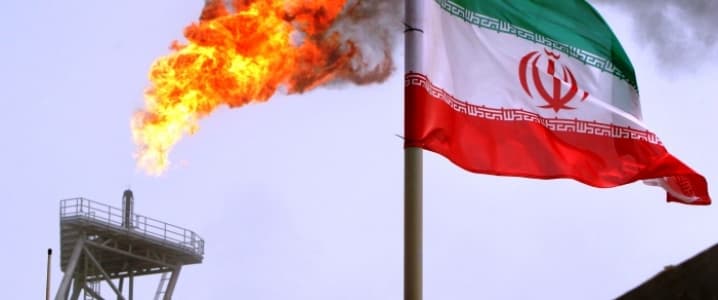Turkish authorities and banks cooperated with Tehran in the development of a scheme aimed at providing Iran with international markets for its gas in exchange for hard currency that was laundered in a variety of ways before it went back to Iran.
That’s the gist of a story that recently got some major publicity with the start of a trial in Manhattan against gold trader Reza Zarrib and banker Mehmet Hakan Atilla, an executive at Halkbank. The two took part in a scheme that originated before 2012 and possibly ran until 2016, when Zarrib was arrested.
The key witness of the prosecution is Reza Zarrib, who pleaded guilty to money laundering and decided to cooperate with the U.S. authorities. Of Turkish-Iranian descent, Zarrib was an early bloomer in entrepreneurship. According to an extensive story in Bloomberg, he started his first business when he was barely 16. He then progressed to multiple businesses in various industries to finally become a player in the sanction-evasion scheme.
The scheme itself, according to investigations by both Turkish and U.S. prosecutors, involved the Turkish government, the national oil and gas company, several bankers, and Zarrib. The national company bought Iranian gas, deposited the money in special accounts in Halkbank, and then it was taken from these accounts and put into shell companies by Zarrib, who then used the money to buy gold and sell it through international banks, skirting sanctions, turning the gold into hard currency and sending it on to Tehran.
Related: The Oil Information Cartel Is (Finally) Broken
Zarrib told prosecutors that he told the banks the gold sales were made to generate funds for humanitarian aid and falsified documents to conceal the source and the destination of the money by, as an example, stating a payment was made for an export cargo of wheat from Dubai, which is neither a wheat grower nor exporter.
Zarrib’s scheme was discovered accidentally by Turkish customs officers who found a surprise cargo of gold on an Airbus flight. Turkish prosecutors launched an investigation into the scheme, which also involved paying massive bribes to government officials to keep it running. Initially, the prosecutors alleged that three ministers took part in the scheme, who all resigned while Zarrab was detained.
The then-PM Recep Tayyip Erdogan took Zarrib’s side and changed the story, claiming that Zarrib was a philanthropist and an asset for Turkey. In an early sign of the way Turkey’s president deals with opposition, all the officials involved in the investigation into the Iran scheme were relocated, dismissed, or even jailed. Then Erdogan blamed the whole thing on exiled opponent Fethullah Gulen, a favorite external enemy of the Turkish president.
When U.S. prosecutors arrested Zarrib, it strained bilateral relations between Washington and Ankara, and these have been getting increasingly strained. After the arrest, Erdogan demanded that Zarrib be released, but this demand was rejected. Now that Zarrib has started to testify, it is gradually becoming clear why Erdogan insisted on his release.
Related: U.S. Shale To Surge After OPEC Extension
So far, Zarrib has told the court that his co-defendant, Mehmet Hakan Atilla, helped to build the scheme because he knew the most about the Iranian sanctions in Halkbank. The bank’s general manager at the time, Suleyman Aslan, also helped. In addition, Zarrib told the court that he had paid at least US$50 million in bribes to Turkey’s then Economy Minister Zafer Caglayan. He also bribed the minister for EU affairs to help convince Halkbank to take part in the money-laundering scheme.
U.S. prosecutors have charged nine people involved in the scheme, but so far they have only arrested Zarrib and Atilla. Atilla has pleaded not guilty. Arrib will continue to testify in the case, and according to prosecutors, the revelations will reach the highest echelon of Turkey’s government—something that will definitely strain bilateral relations.
By Irina Slav for Oilprice.com
More Top Reads from Oilprice.com:
- Oil Majors Are Leading The Recovery Race
- China's EV Plan Could Cause An Oil Price Crash
- Venezuela Is Losing Its Best Oil Buyer


















